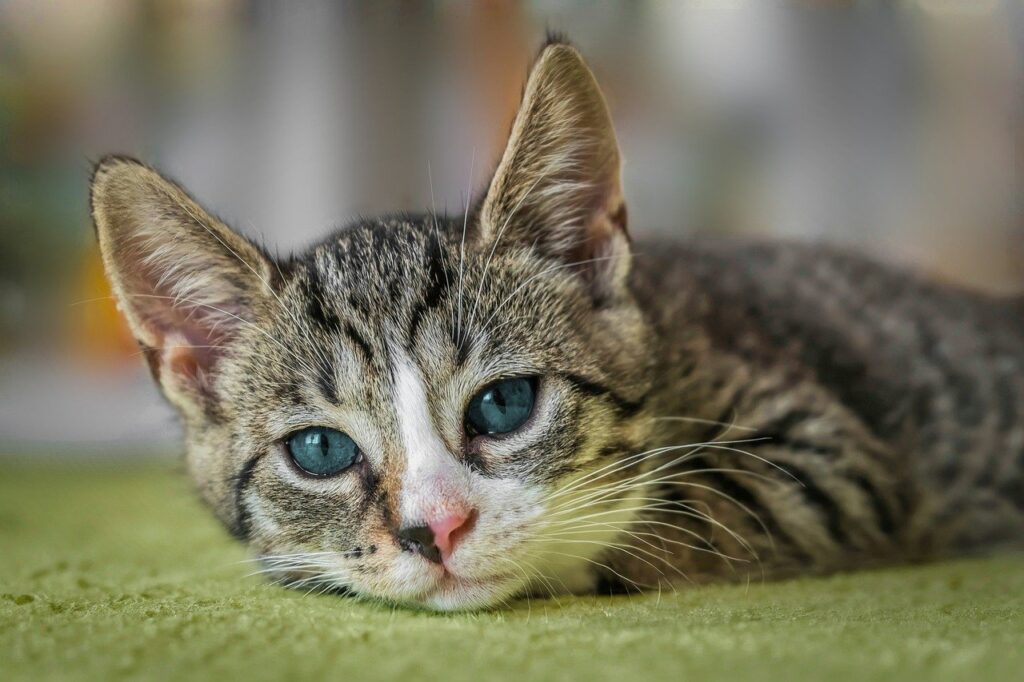
Why Is My Cat Breathing Fast? Understanding Rapid Breathing in Cats
Rapid breathing can be alarming to any pet owner. If your kitty appears to be breathing rapidly, there could be several causes – let’s examine these in more depth and establish when medical help should be sought for additional issues.
What Is Rapid Breathing? A cat’s average respiratory rate typically ranges between 20 and 30 breaths per minute. Any time they breathe more frequently than that, it’s considered rapid breathing – you can count the breaths by watching their chest rise and fall for one minute to determine the number of breathing cycles per second. Possible Causes for Rapid Breathing? Typically speaking,, cats breathe between 20ando 30 breaths every minute, whichisterinarians consider normal. However, any cat that breathes faster is classified as rapidly breathing by humans, too!
Possible Sources of Rapid Breathing
- Stress and Anxiety
Cats can experience stress and anxiety similar to people, often manifested through changes to their environment, new pets or people entering loud noises, and changes to routine. Potential sources include changes to your surroundings and a cat’s routine, such as moving house. - Heatstroke [2,3,4,5,6,7]
Cats can be susceptible to high temperatures; if your cat has been exposed to extreme temperatures or has been active in warm environments for an extended period, they could develop rapid breathing as an indicator of potential heatstroke. - Respiratory Infections
Respiratory tract infections, like feline herpesvirus or calicivirus, can cause rapid breathing. Other symptoms might include sneezing, coughing, nasal discharge, and lethargy. - Heart Disease
Heart diseases like hypertrophic cardiomyopathy (HCM) can contribute to rapid breathing. As your heart works to pump blood efficiently, fluid builds up in your lungs, resulting in difficulty breathing and exhaling. - Feline Asthma
Feline asthma, which involves inflammation and constriction of airways, can also be an underlying factor. Common signs include coughing, wheezing, and labored breathing. Symptoms that should prompt medical intervention are coughing, wheezing, and labored breathing. - Pain or Injury
Rapid breathing may also be an indicator of pain or injury. Be on the lookout for signs of trauma as well as recent activities or accidents that might have resulted in any physical harm being done to yourself or another. - Pulmonary Issues
Lung conditions such as pneumonia, pulmonary edema, or tumors can increase breathing rates significantly and present with coughing fits, blue gums, or lethargy as telltale indicators. Coughing may also signal impending doom for your health – be wary! - Anemia
If your cat is anemic, their body might try to compensate by increasing its breathing rate to transport more oxygen. Signs of anemia in cats include pale gums, weakness, and decreased appetite.
When to Seek Veterinary Assistance
While rapid breathing might be benign or temporary, other causes could require urgent medical assistance. Consult a veterinarian if any of the following symptoms develop: [PERSISTENT RAPID BREATHING THAT DOESN’T RADIATE WITHIN 30 SECONDS (PERSENTINTS RAPID BREATHING THAT REFUSES TO RISE AT ANY TIME WITHIN 3 minutes); or
Accompanying symptoms may include coughing, wheezing, nasal discharge, lethargy, or blue gums; behavioral changes include hiding from visitors; decreased appetite or resistance to moving; history of cardiovascular or respiratory conditions or trauma as possible causes;
Preparing Your Cat to Visit the Vet
Before visiting a veterinarian, ensure your cat remains calm and relaxed by creating an environment that provides plenty of water, is temperature-controlled, and offers quiet spaces where they can play safely. Any activities which might further stress out their condition must also be avoided.
Conclusion
Rapid breathing in cats may be caused by many factors, from stress and heat exposure to serious medical issues like heart disease or respiratory infections. Monitor their behavior closely along with any additional symptoms to gauge urgency; always consult your veterinarian so your pet gets proper medical treatment.
